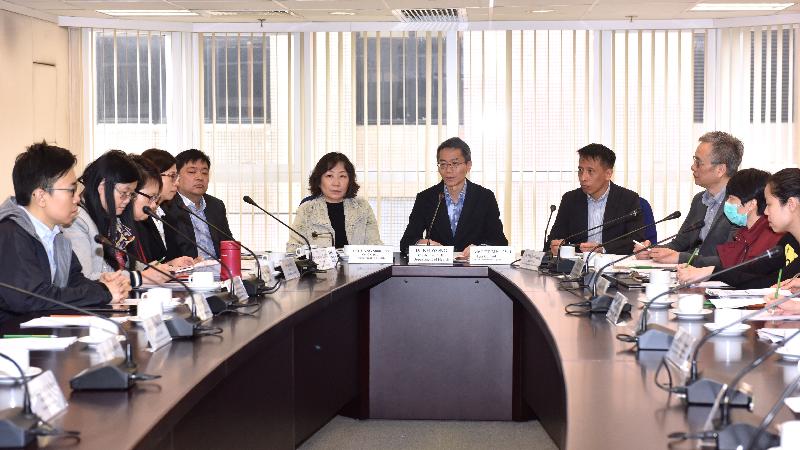Interdepartmental efforts against mosquito-borne diseases reinforced in preparation for rainy season (with photo)
******************************************************************************************
Chairing the meeting, the Controller of the Centre for Health Protection of the Department of Health, Dr Wong Ka-hing, said, "As Hong Kong expects normal to above-normal temperatures and rainfall this spring, our risk assessment is that the activity of mosquito-borne diseases may increase. Stagnant water accumulated after rain is particularly favourable for mosquitoes to breed and proliferate rapidly.
"Anti-mosquito measures of bureaux/departments and organisations, especially those involving works, people's livelihoods and institutions/schools, are key to guarding both the community and households from infections and possible outbreaks. Contractors, working partners and stakeholders should get preventive measures ready before the warm and rainy season when mosquitoes breed."
Hong Kong recorded the highest number of dengue fever cases (124) in 2016. In 2017, 16 cases had been recorded as of March 23, compared to 20 in the same period in 2016. In the past, a local case of dengue fever occurred as early as in May. Of note, in 2014, 2015 and 2016, there were three, three and four local cases respectively, with no local cases in the other years of the last decade except for four in 2010.
Dengue fever remains endemic in some neighbouring and overseas areas. Epidemiological experiences from endemic areas have shown that an upsurge of cases can be observed within a short time once indigenous transmission of dengue virus is established. Hence, the public should stay alert in the coming months and take heed of the following advice on mosquito control:
- Thoroughly check all gully traps, roof gutters, surface channels and drains to prevent blockage;
- Scrub and clean drains and surface channels with an alkaline detergent compound at least once a week to remove any deposited mosquito eggs;
- Properly dispose of refuse, such as soft drink cans, empty bottles and boxes, in covered litter containers;
- Completely change water of flowers and plants at least once a week. The use of saucers should be avoided if possible;
- Level irregular ground surfaces before the rainy season;
- Avoid staying in shrubby areas; and
- Take personal protective measures such as wearing light-coloured long-sleeved clothes and long trousers and apply insect repellent containing DEET to clothing or uncovered areas of the body when going for outdoor activities.
As for Zika Virus Infection, the ICC has noted the new Zika virus country classification of the World Health Organization, under which countries/areas in Categories 1 and 2 out of four are regarded as those with ongoing transmission. Continued attention should be paid particularly to these areas while ongoing health advice should also be observed.
Ends/Thursday, March 30, 2017
Issued at HKT 14:30
Issued at HKT 14:30
NNNN





